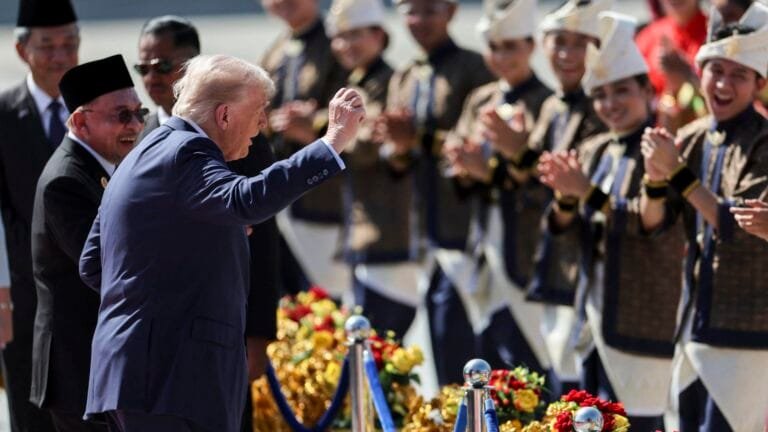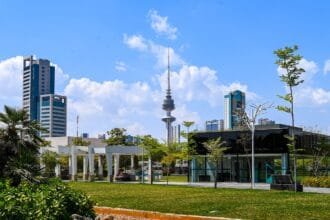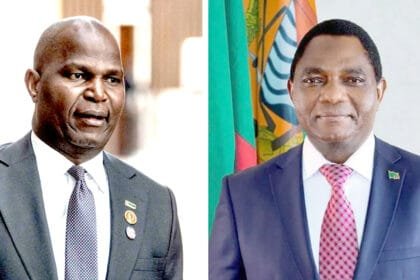Washington, United States – US President Donald Trump witnessed the signing of a ceasefire agreement between Cambodia and Thailand on Sunday in the Malaysian capital, Kuala Lumpur. This agreement was the first stop on his Asian tour, which also includes Japan and South Korea.
The agreement was signed by Cambodian Prime Minister Hun Manet and his Thai counterpart, Anutin Charnvirakul, in the presence of Trump. Trump is attending the Association of Southeast Asian Nations (ASEAN) summit.
This agreement comes five days after the two sides exchanged missiles and heavy artillery fire on the shared border, resulting in the deaths of at least 48 people and the temporary displacement of approximately 300,000.
The agreement aims to release 18 Cambodian soldiers held by Thailand. It also begins the withdrawal of heavy weapons from border areas. An ASEAN monitoring team will be formed to monitor the implementation of the ceasefire provisions. It also aims to coordinate the removal of landmines, which were a direct cause of the recent fighting.
“We have ended the eighth war of my administration. We have accomplished something many said was impossible. We have succeeded in ending the conflict between Thailand and Cambodia, and I congratulate the leaders of both countries on the peace agreement,” Trump said in a speech following the signing ceremony.
He added, “Our goal is to stop wars and advance the path to peace and prosperity. Our message to the countries of Southeast Asia is that the United States is with you 100 percent, and we intend to be a strong partner for generations to come.”
This agreement is one of Trump’s most notable achievements in his second term. During the conference, he presented himself as a “global peacemaker,” particularly after supporting the mediation efforts led by Malaysian Prime Minister Anwar Ibrahim. These efforts earned him a Nobel Peace Prize nomination from former Cambodian Prime Minister Hun Sen.
For his part, Cambodian Prime Minister Hun Manet described the day as a “historic day,” while his Thai counterpart, Anutin Charnvirakul, affirmed that the agreement “lays the foundation for lasting peace between the two neighboring countries.”
Thus, Washington has strengthened its role as a regional mediator in Southeast Asia. This comes amid growing competition among international powers for influence in the region.
















